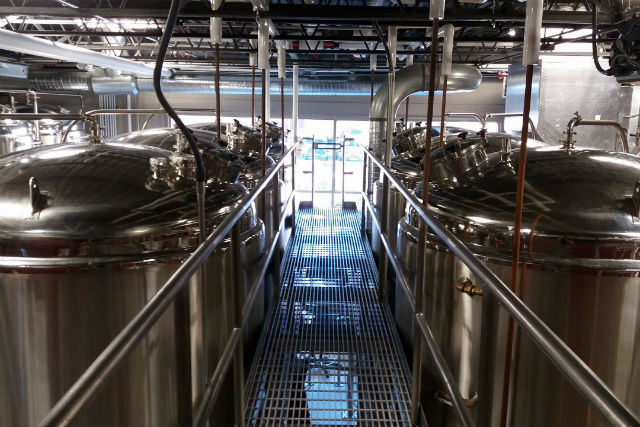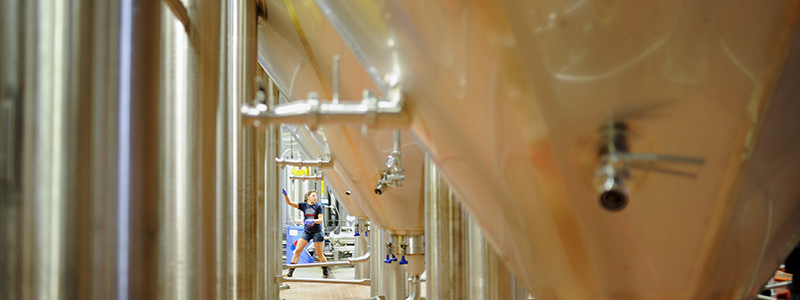
When a lot of breweries start off, especially with smaller systems, flashing off chlorine in a hot liquor tank can help a brewery to quality water. It’s the growth stage that John Stewart of Perrin Brewing said can be a brick wall.
“From what I’ve seen as breweries start off, they don’t run into issues,” he said. “But as the production ramps up and they’re selling more beer, they get busier then they start to fill their hot liquor tanks up and they’re not giving it that contact time where they were naturally flashing off chlorine and suddenly they’re putting chlorinated water into their product.”
According Stewart those breweries are changing their brewing process because they’ve gotten faster.
“They’re basically putting chlorinated water into the product where as before if you fill the hot liquor tank up the night before, you let that chlorine flash off. It wasn’t an issue,” he noted. “Now if they do three or four brews in a single day, they’re not giving it that time.”

A simple fix is to install a carbon filter to remove that chlorine, which many do.
“When you mix chlorine with dark malts, you get those chloro polyphenols and you start to get Band Aid, plastic and electrical tape and all sorts of off flavors that can be formed from it,” Stewart said. “So to me, at a bare minimum, I always tell people you’ve got to do something to make sure that the chlorine is being removed.”
Worthy Brewing‘s Quality Manager, Victoria Chaplin shared these tips with Brewer for what the Bend, Oregon brewery does to ensure quality water from the start:
“On site, we have an activated carbon filter to remove the majority of water impurities,” she said. “We regularly use third party labs to screen for water impurities.”
Water samples have been added to regular microbial checks by the brewery’s lab as well and the brewing water goes through sensory checks fairly regularly, similar to post packaging tasting panels.
Even for breweries that don’t have an advanced lab to track some parts water testing, municipal water facilities are a great place to reach out to for information, Stewart said.
“Another place I always tell people is to talk to their chemical vendors,” he added. “Those vendors will actually do free testing — it’s part of a service for them. So if you’re buying either the chlorine testing material or if it’s just cleaning chemicals, a lot of these chemical companies have the lab in place and it’s just as part of the customer/supplier relationship they’ll do water testing.”






Be the first to comment